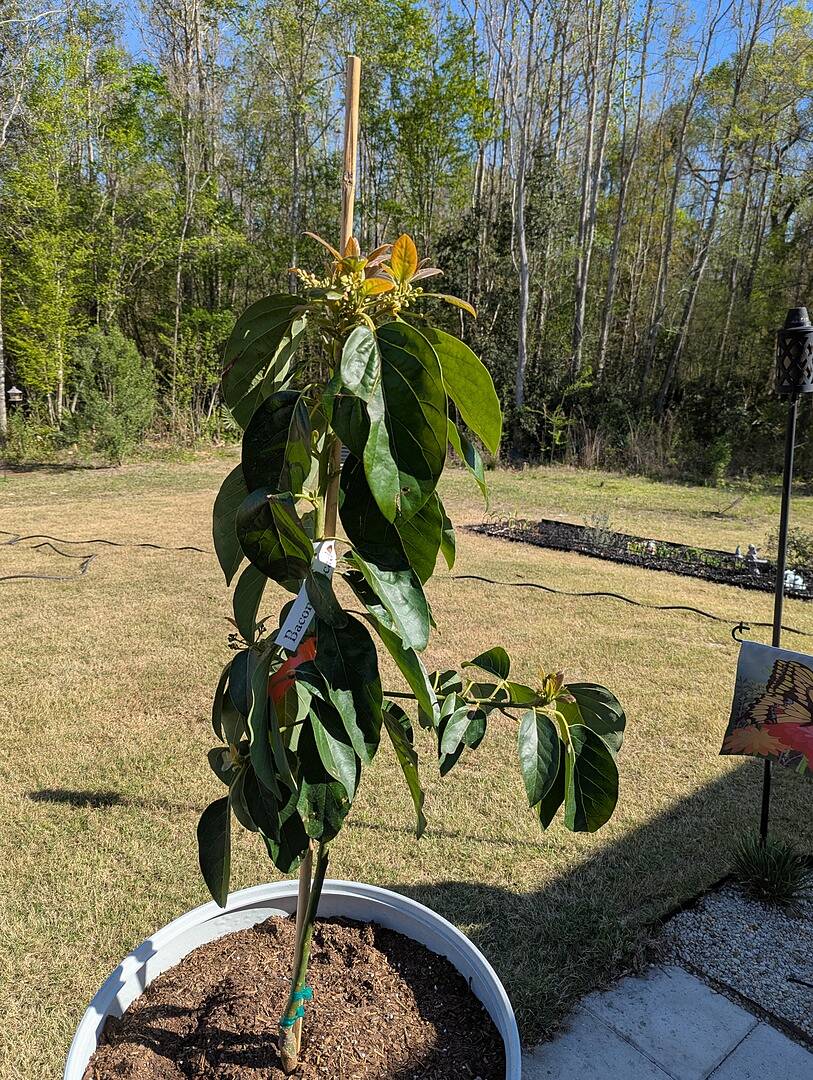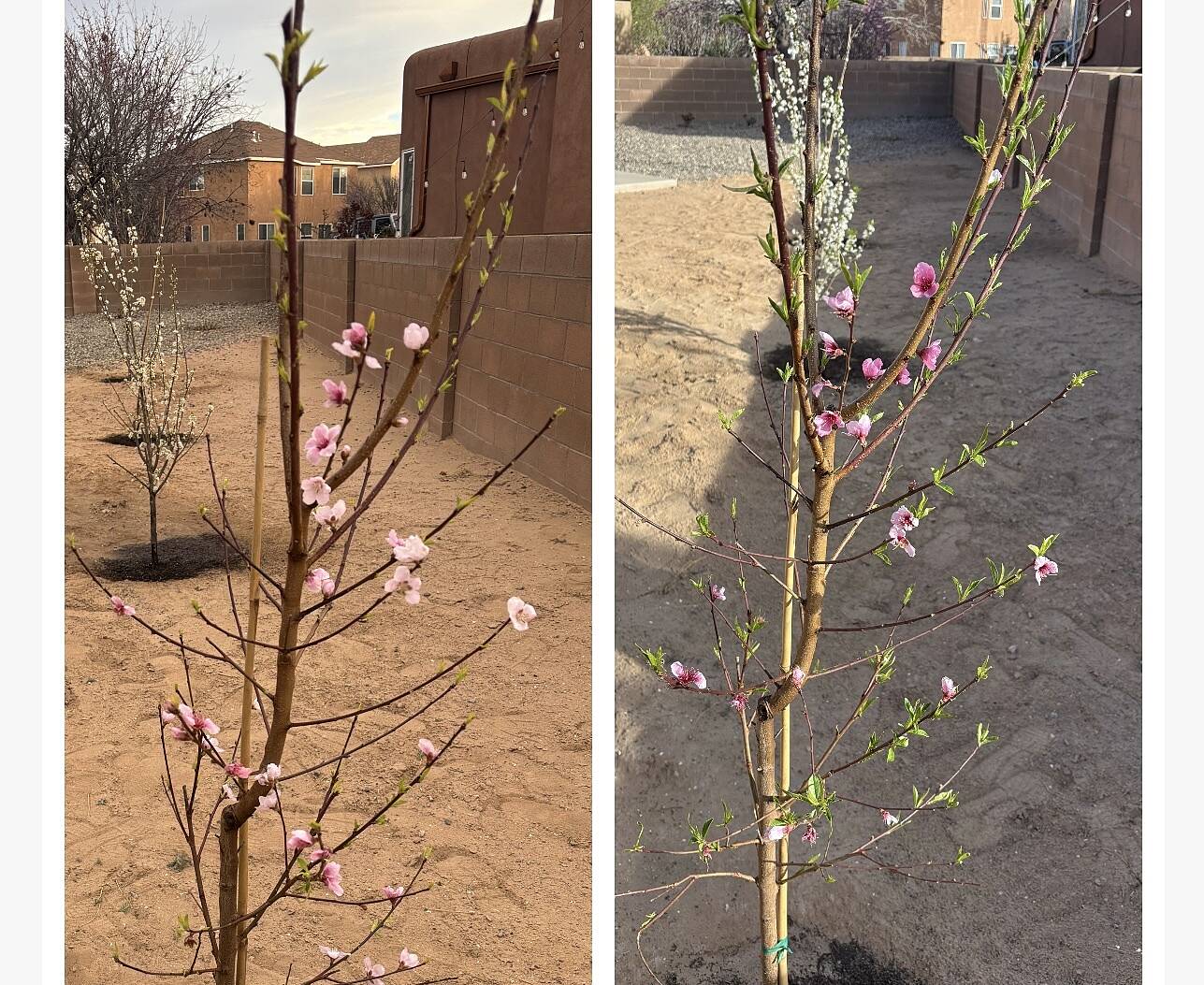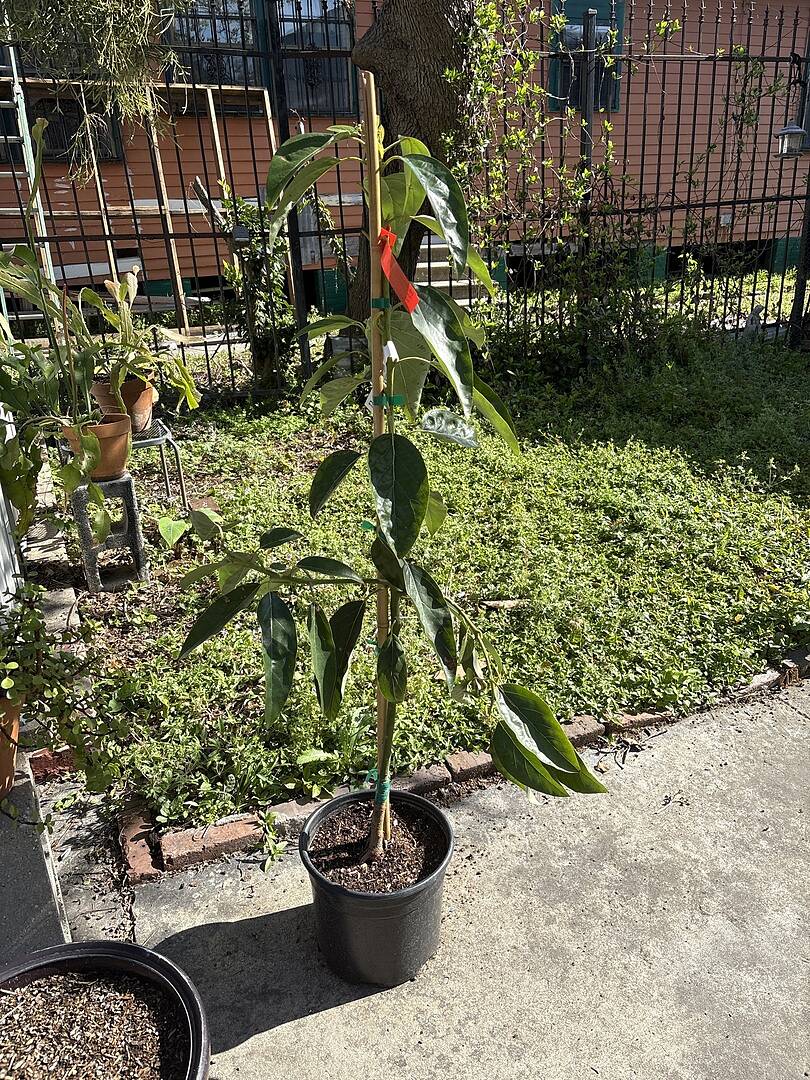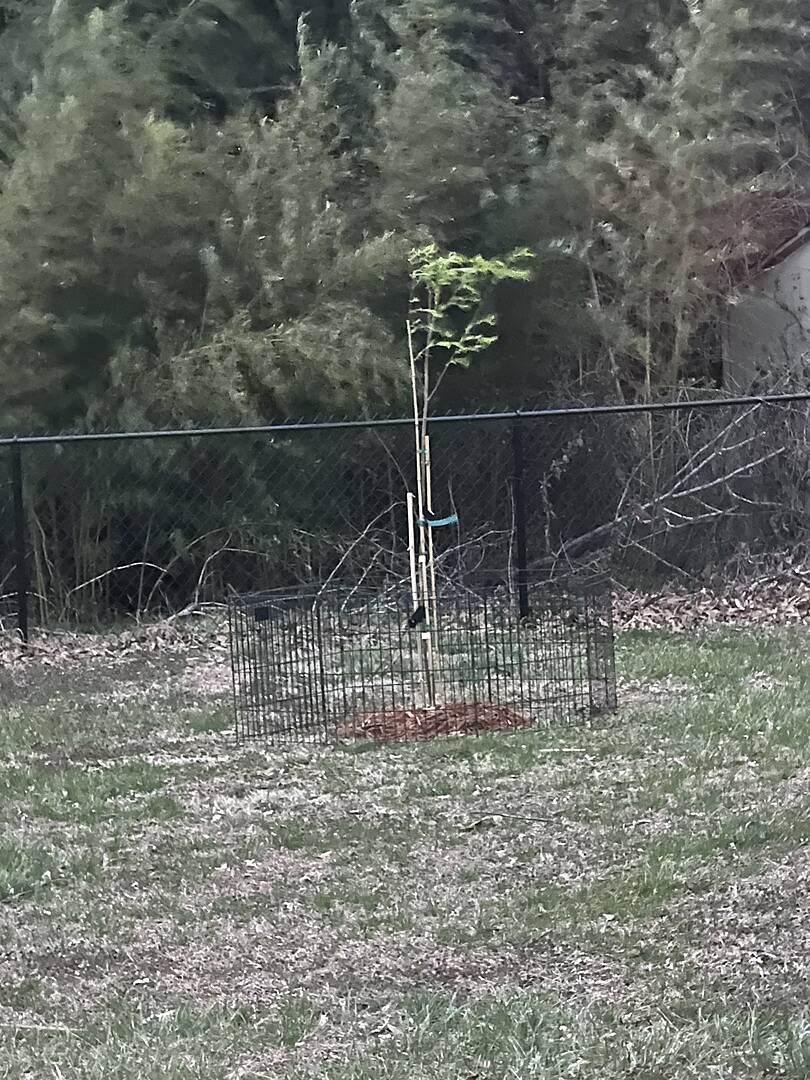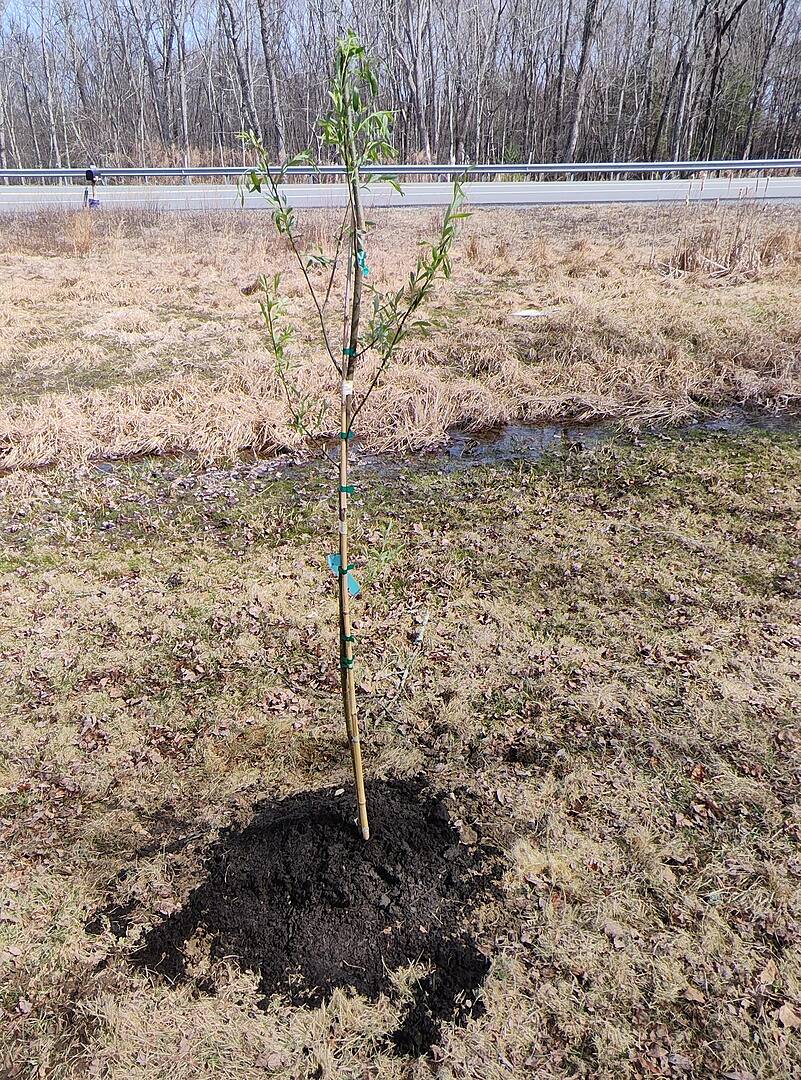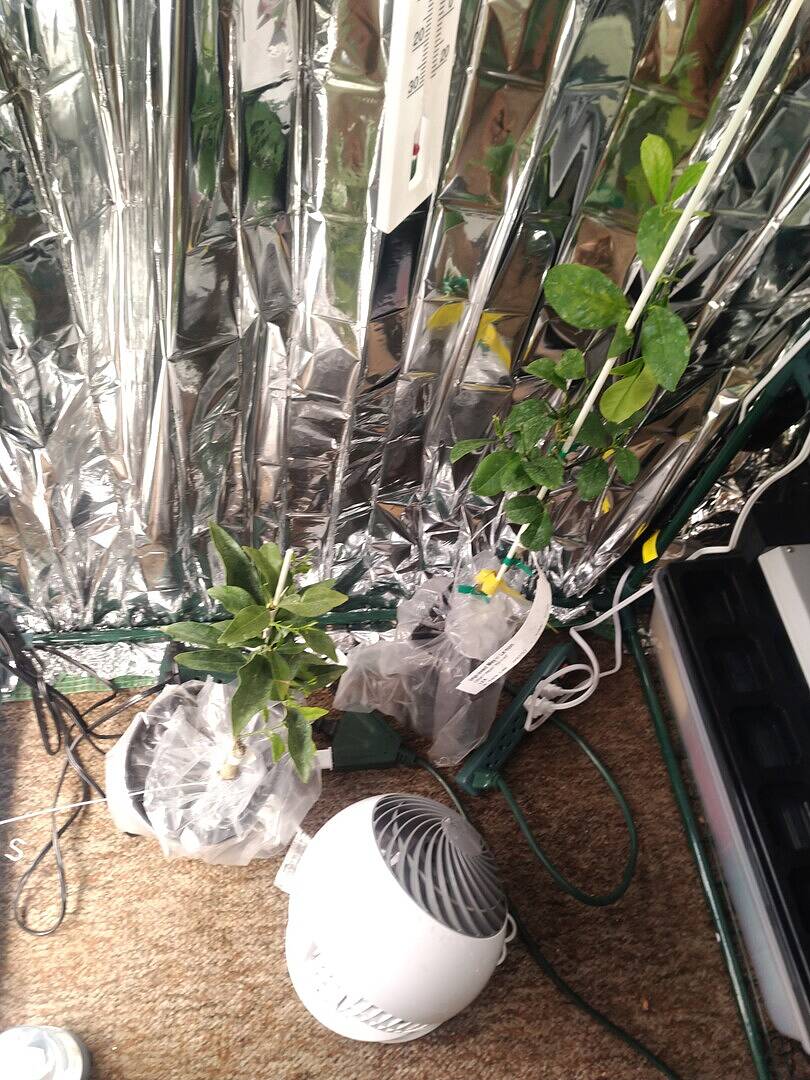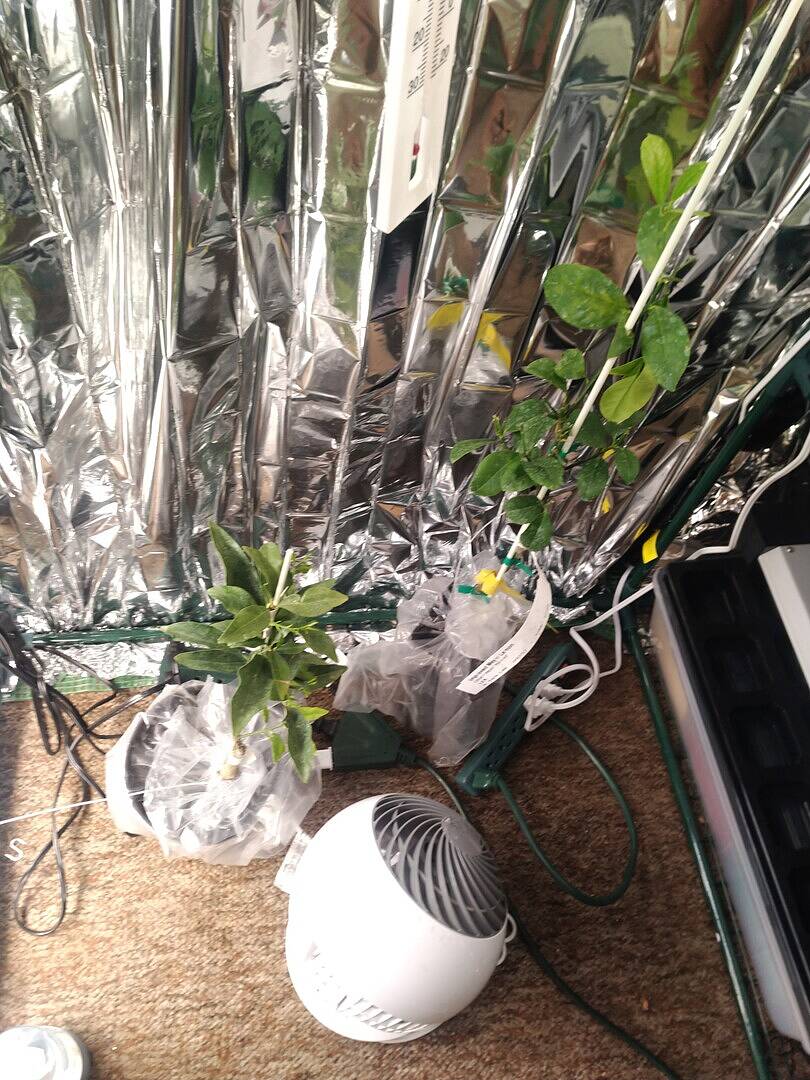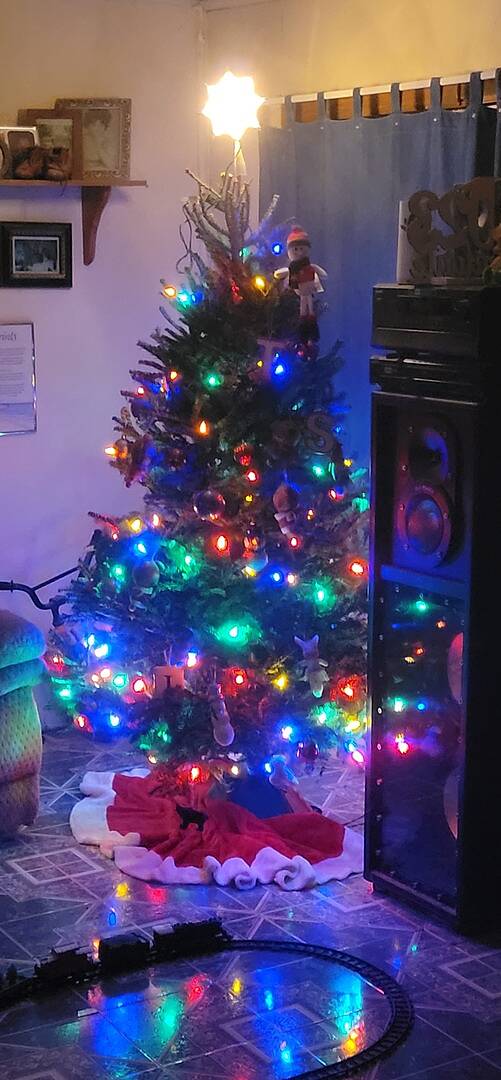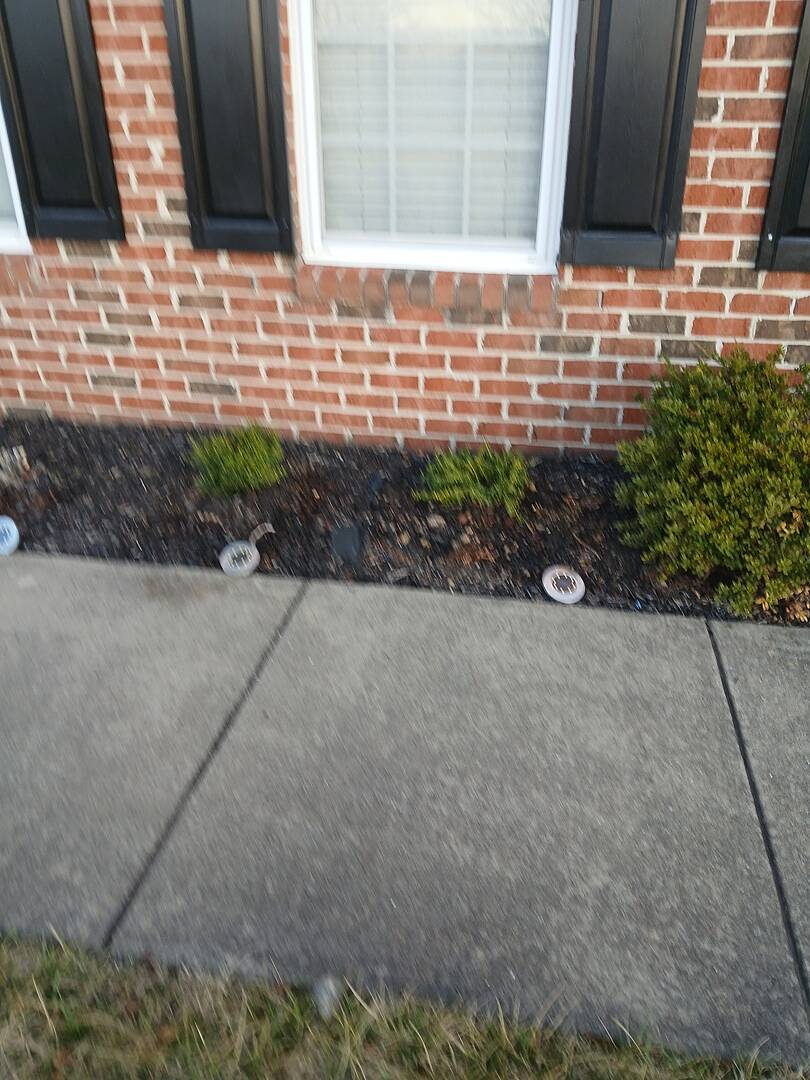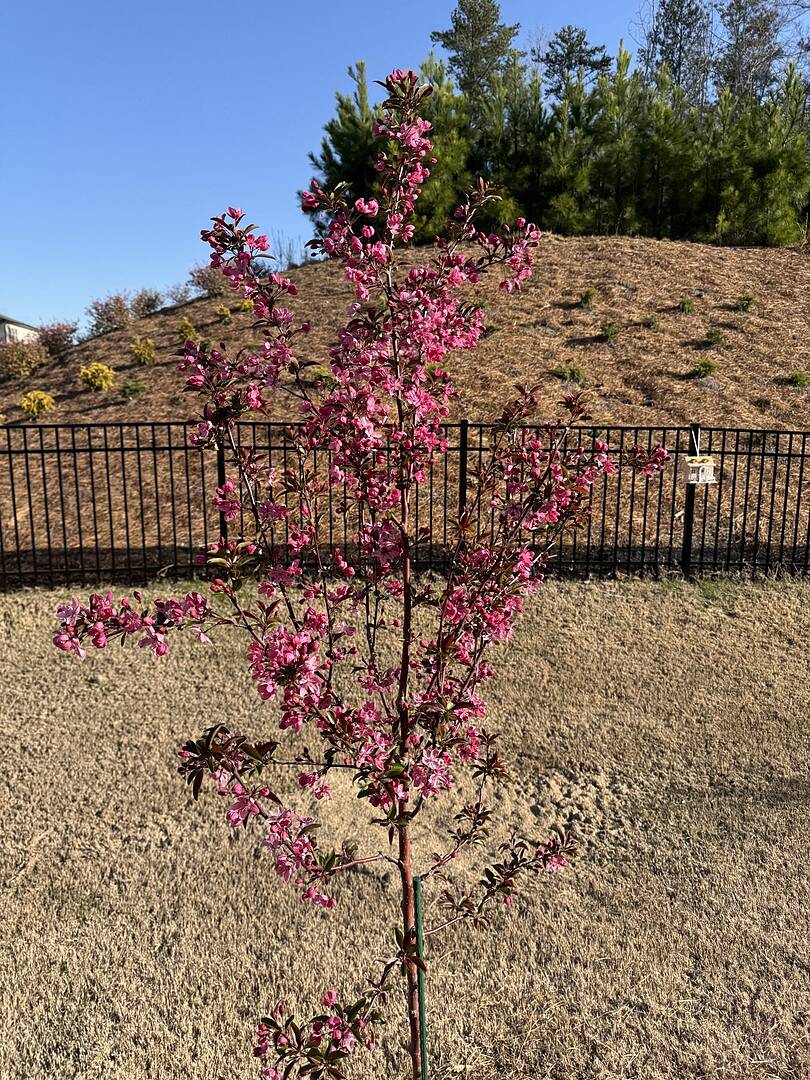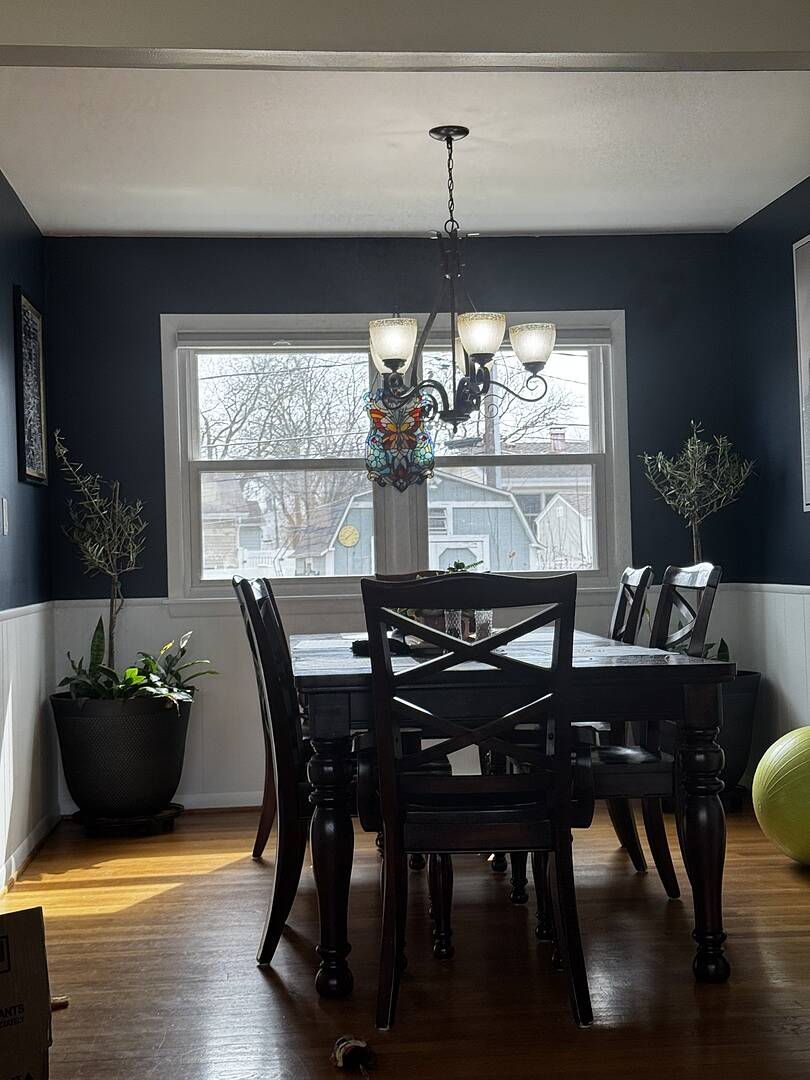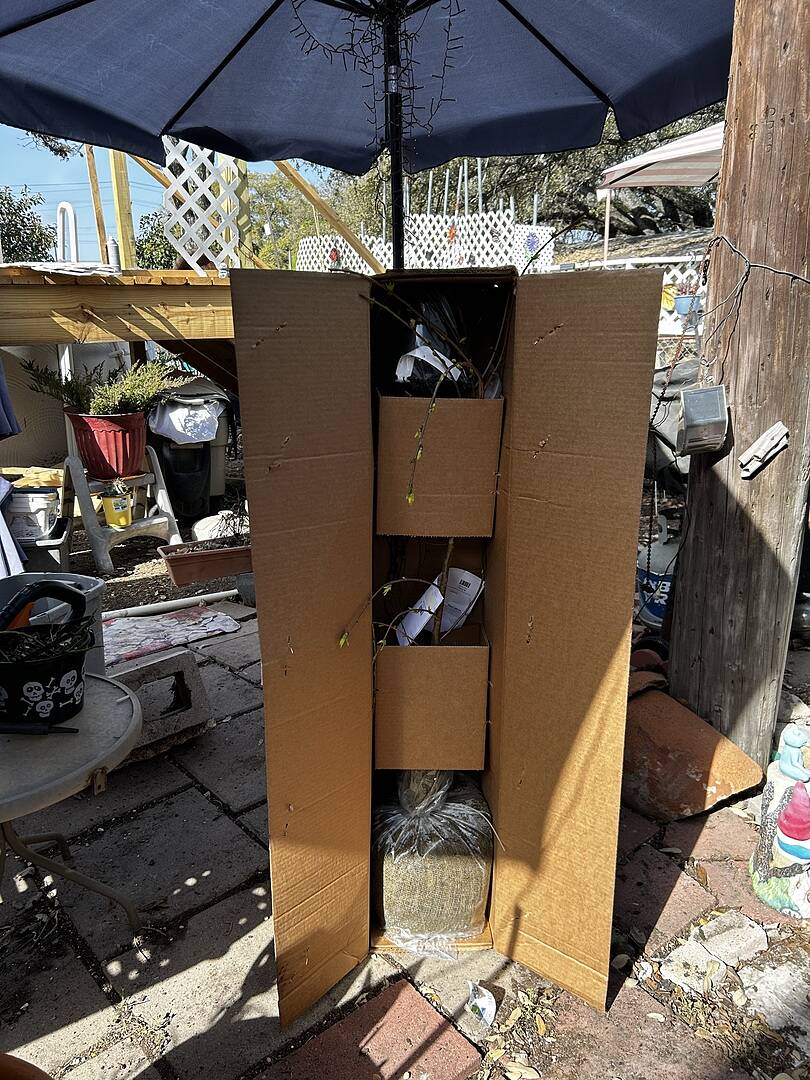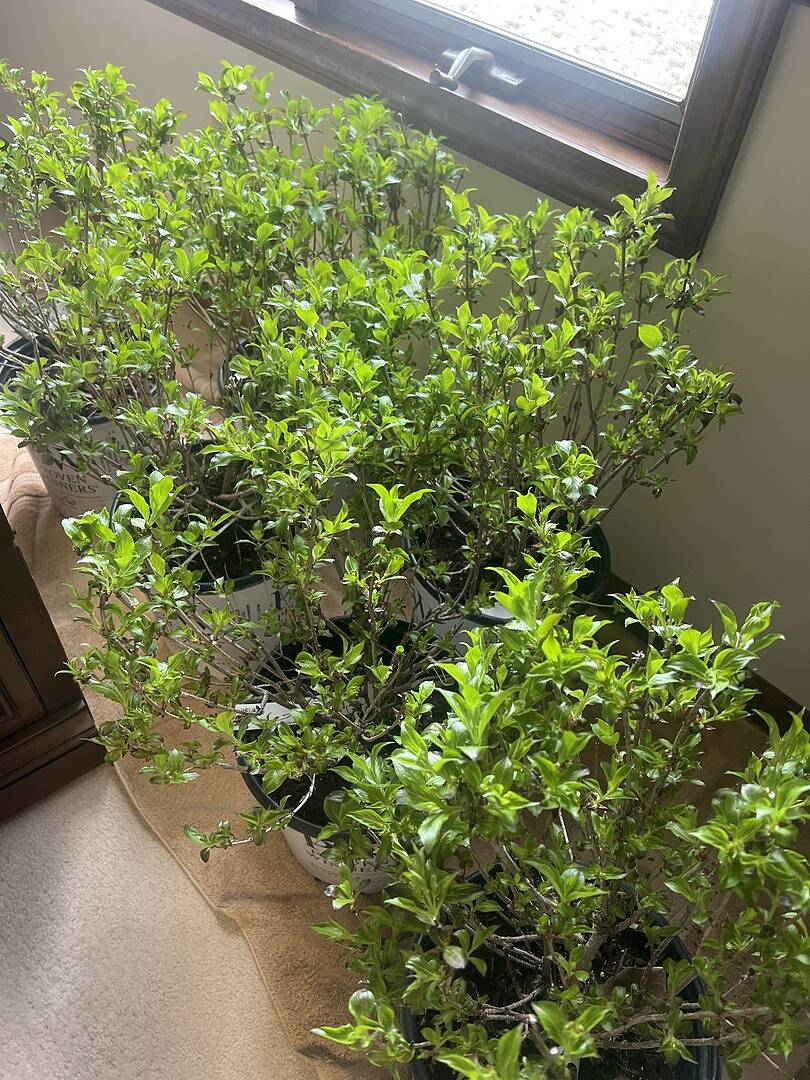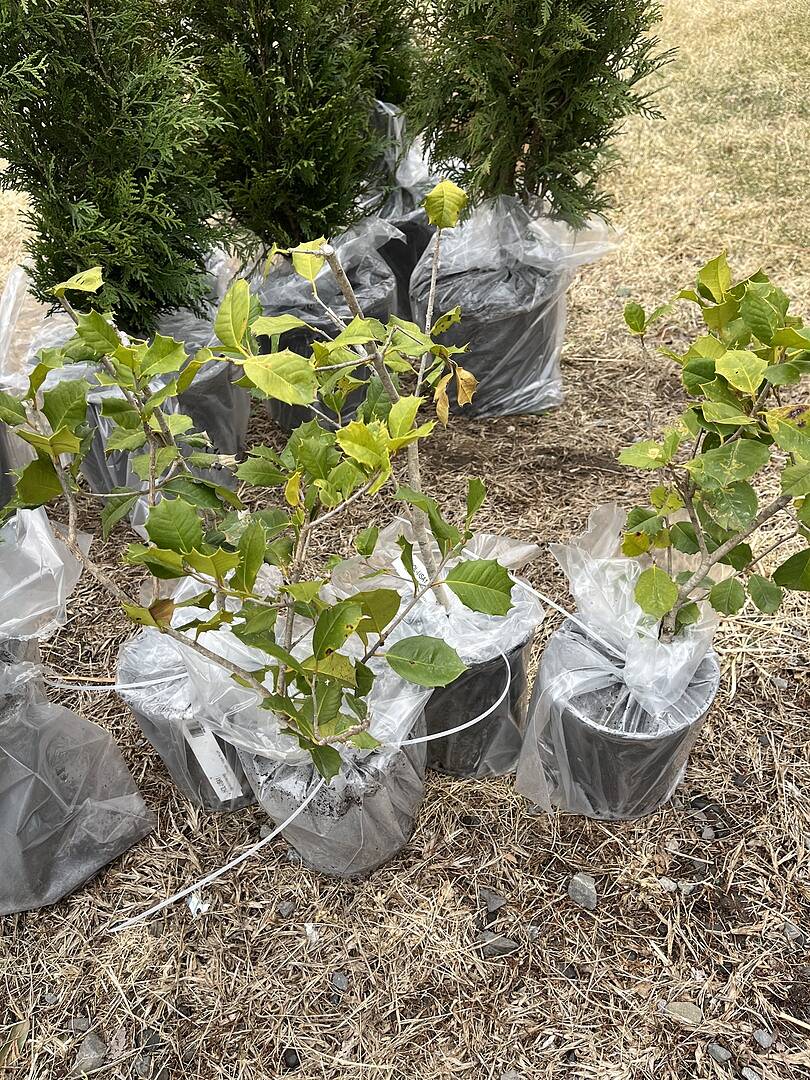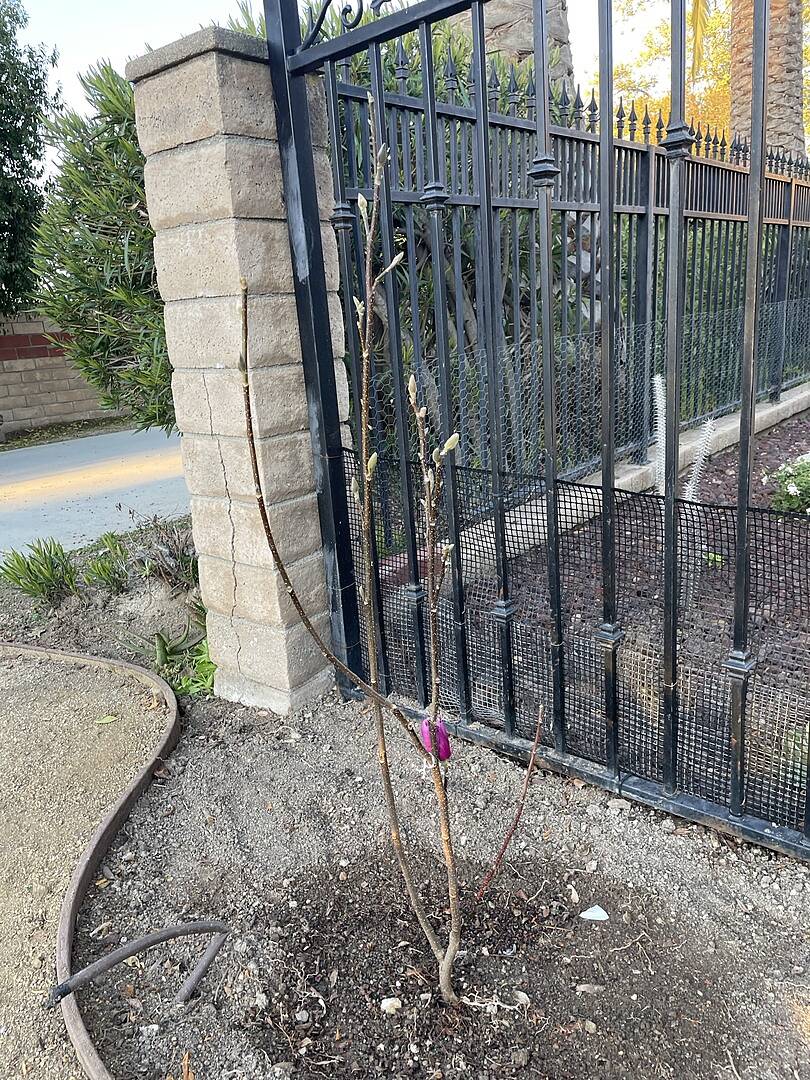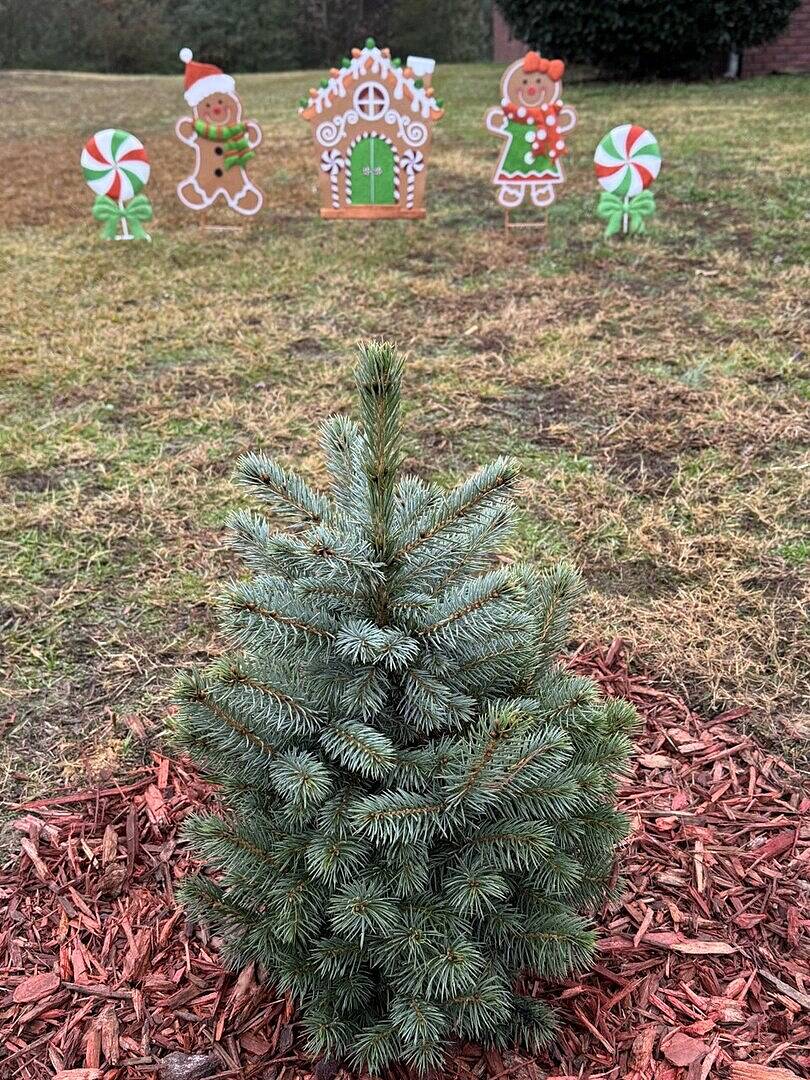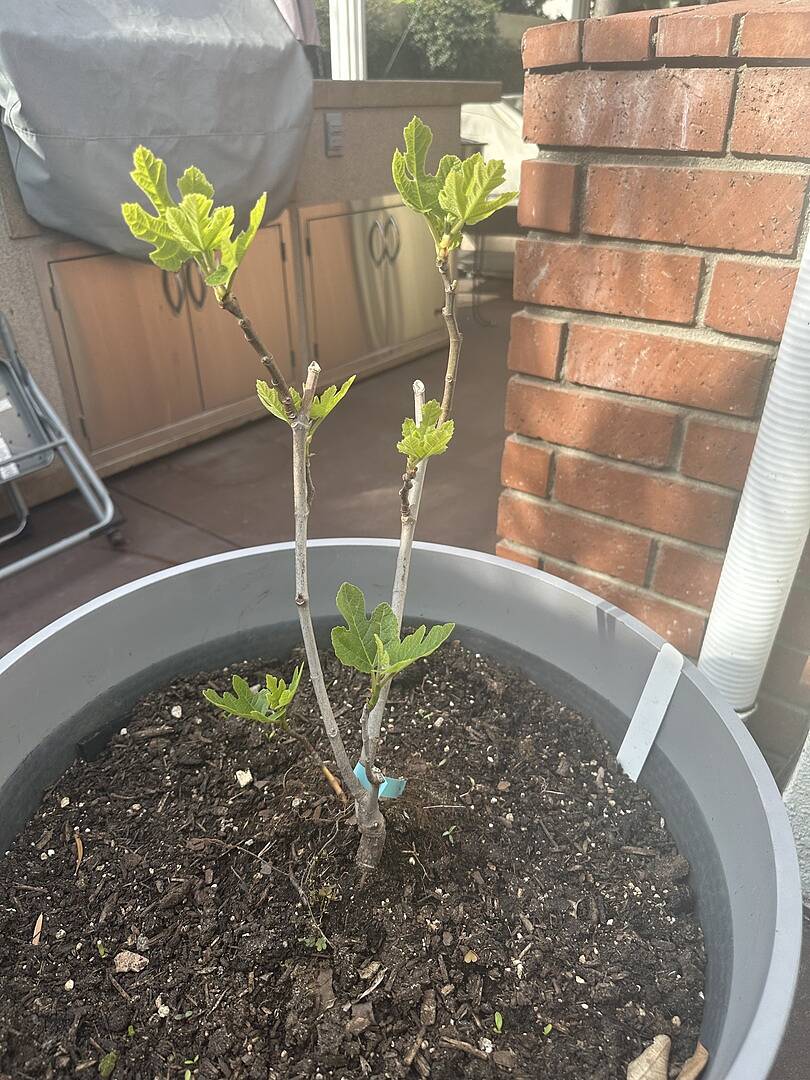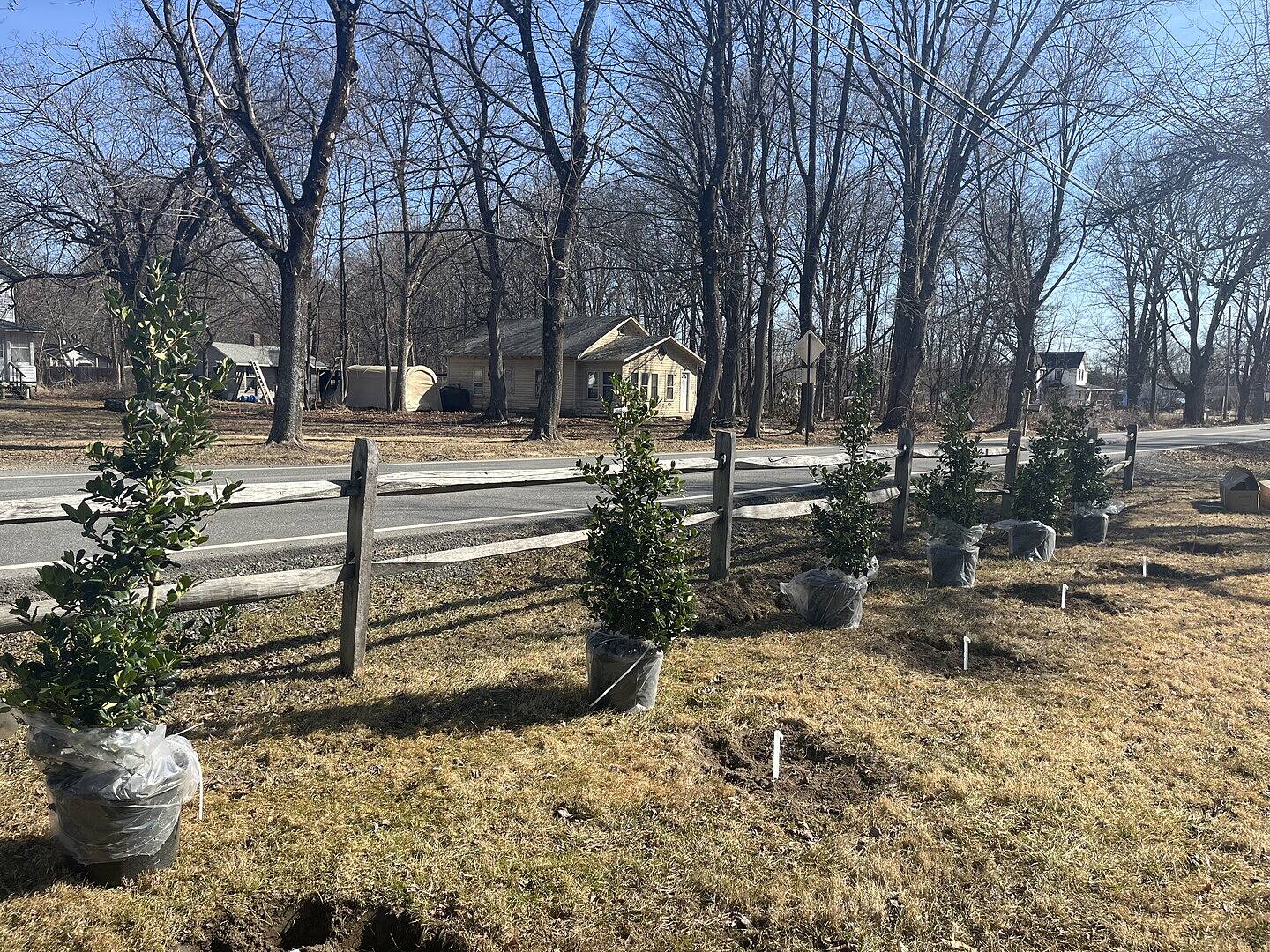Christmas Trees
Only items for my growing zone
Zone -
Collection Results
Celebrate the holidays with premier real Christmas trees for sale. Whether you’re looking for a pristine, cut Fraser fir that’s ideal for decorating or an outside evergreen that can withstand brisk weather and snowfall, FastGrowingTrees has options to turn your home into a winter wonderland!
When it comes to the best Christmas tree deals, our trees combine incredible quality with reasonable prices. Read on to learn more about the best Christmas trees to buy to outfit your home for the holiday season.
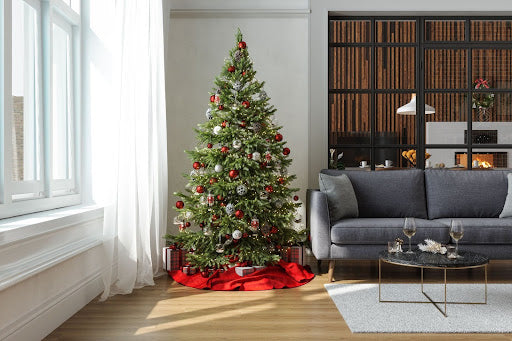
Christmas Trees Care and Maintenance
Depending on the variety of tree you buy, and whether your tree is cut or living, your care routine will differ, so be sure to reference your specific tree type’s needs, but here are a few starter tips to consider:
Caring for cut Christmas trees: Place your tree in a draft-free location, away from heaters and vents, and in front of a sunny window. Keep the bottom of the tree moist through daily watering and remove any dead or damaged foliage.
Caring for live indoor Christmas trees: Your tree will arrive carefully packaged in its nursery pot. When it arrives, give it a good watering. We recommend leaving it in its nursery container for the first few days so that it can acclimate to its environment. When you are ready to replant, use an evergreen soil mix and plant in a container that’s about 2 inches bigger than the pot it came in.
Place your living Christmas tree in a brightly lit area that has good airflow, ideally away from areas of the house that may experience drastic temperature changes such as near a fireplace or frequently opened door to the outside. A south-facing window where it will get around 6-8 hours or more of direct sunlight per day is ideal.
Water your live indoor tree with room temperature or slightly cold water whenever the soil is dry a few inches down. The soil should be kept moist but not soggy. Overly dry soil can lead to needle drop, especially when decorated with lights.
Planting your live Christmas trees outdoors: Once the holidays are over, it’s time to get your tree ready to transfer outside. But before you start digging, you’ll first want to acclimate your tree to the outdoor climate so it’s not shocked by the vast temperature change.
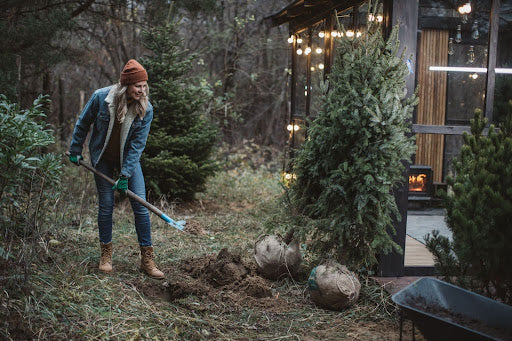
Slowly reintroduce your tree to the outdoors by keeping it in a sunny and protected area, like a covered porch or next to your house, for a week or two before planting it in your yard. If you live in Zone 7 or colder, wrap the bottom of the pot with a frost blanket to keep the roots warm until it’s time to plant.
Once acclimated, it’s time to plant your holiday trees. Locate a sunny spot in your yard that receives at least 6 hours of sunlight a day. If you know your ground freezes, making it difficult to plant after the holidays, consider preparing the area in the fall by digging the hole, prepping the soil, and clearly marking the area.
Since you’re planting outside the typical spring and fall planting seasons, protect the roots and conserve water by mulching the area around the base of the tree. If you live in a windy area, stake your tree after planting and wrap it with a frost blanket or other breathable fabric like burlap.
The best part about planting outside is that you’re able to continue making the tree a part of your family traditions for years to come—decorate it with wildlife-friendly decorations like popcorn garland to extend the holiday joy!
Types of Christmas Trees
There are numerous Christmas trees varieties you can use to decorate both the interior and exterior of your home. Here are just a few of our favorites:
Fraser Fir Christmas Tree: Our bestselling cut Christmas tree is grown in the mountains of North Carolina and hand-selected by our plant experts for you to enjoy. Full, festive, and fresh, the Fraser Fir boasts a classical pyramid shape, soft needles, and a fragrance that’s quintessential to the Christmas holiday. But the best part of our cut Frasier Fir is that it arrives healthy and fresh right to your doorstep—saving you from driving to the tree farm, chopping it down yourself, and getting it back to the house!
Colorado Blue Spruce Tree: Boasting silvery blue-green leaves year-round and a sleek silhouette, this no-nonsense spruce can last for hundreds of years when planted in your landscape. Deer and drought-resistant, this must-have can achieve heights of up to 60 feet tall! If you’re in the market for a real mini christmas tree, consider ordering one of our smaller sizes for an accent holiday decoration before planting in your yard.
Juniper ‘Wichita Blue’ Tree: Thick and full, the Wichita Blue Juniper is an ideal choice for medium-height privacy and wind screens as they don't tend to interfere with power lines. Its silvery-blue foliage makes for beautiful Christmas greenery—just snip a few branches for fresh juniper-scented, holiday decor!
For additional Christmas trees for sale, browse our full collection of evergreen trees.
Benefits of Christmas Trees
While many people think there are only two options when it comes to Christmas trees—fake and cut—living Christmas trees are becoming an ever-more popular choice for those who appreciate eco-friendly alternatives. A living Christmas tree is a planted spruce, fir, or pine that remains in its pot during the holiday season, and can then be planted in your yard in the new year, instead of being dispatched to your basement or the dump.
In addition to being an eco-friendly option, living Christmas trees provide a fresh look and feel with their soft texture and evergreen fragrance, helping you make feel-good memories with your loved ones.
Common Questions About Christmas Trees
How do I know if my tree is dying or struggling?
Signs that your Christmas tree is struggling include excessive needle drop, branch breakage, and brown needles.
Why are the needles falling off?
When it comes to live cut Christmas trees, some needle loss is expected, however, there are steps you can take to avoid excessive needle drop. First, check your tree’s water level to see if your stand contains water. Second, check your tree’s placement. Needle drop can be exacerbated by stress caused by extreme temperature changes. Avoid areas where vents are present or spots near outside doors or fireplaces.
Is having a living Christmas tree safe for my pets?
While most trees used for Christmas decor are considered non-toxic for animals, you should always check the specific variety. Additionally, while the needles and branches may be considered non-toxic, there are some steps you can take to ensure your pets are kept safe around your tree. For instance, stabilize your tree if your pet likes climbing! Use a strong, sturdy base, check regularly that the tree is tight and stable, and even consider securing your tree to the ceiling with wire.
More Holiday Resources
Living Christmas Decor: Deck the Halls with Plants this Year
Evergreen Trees: Top 5 for the Holidays and Beyond













